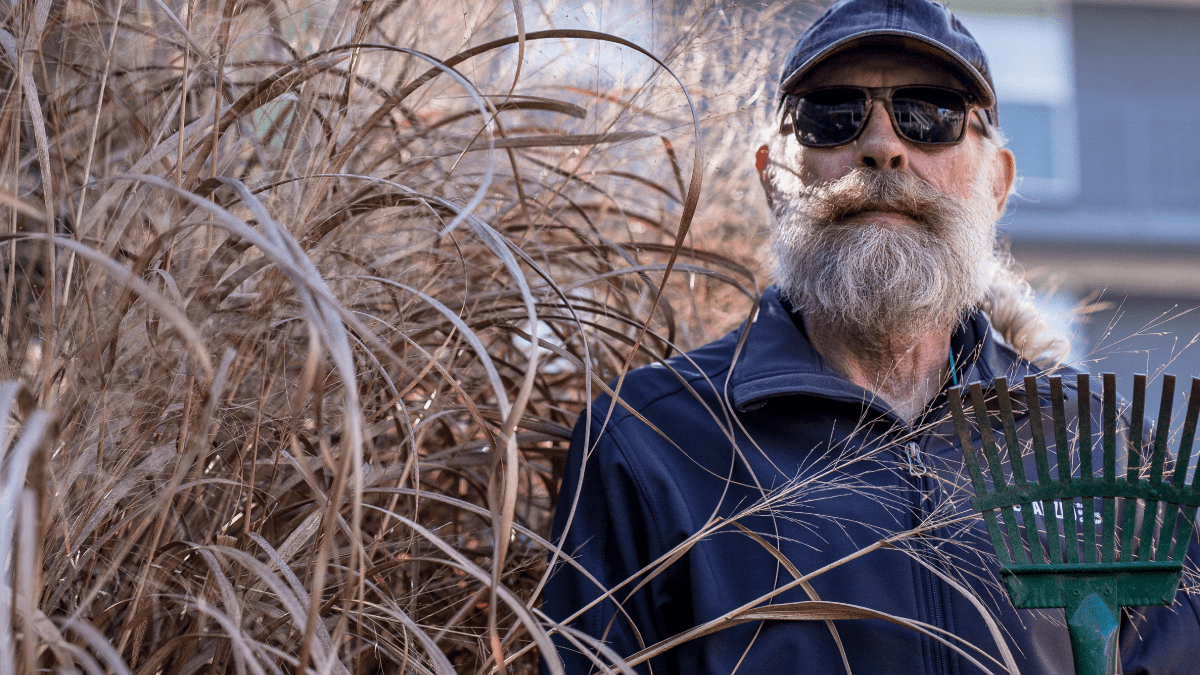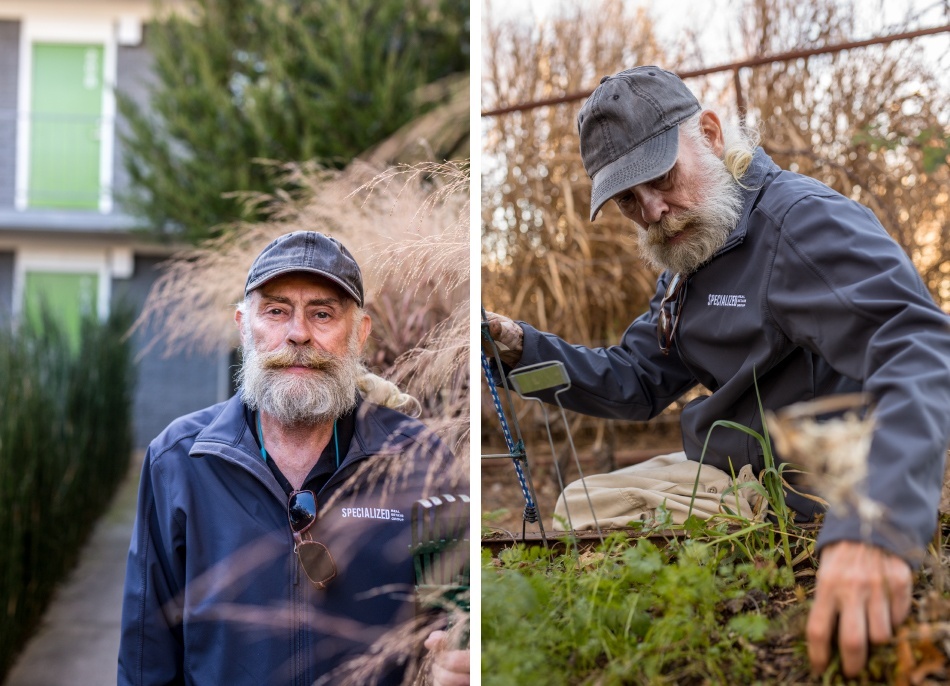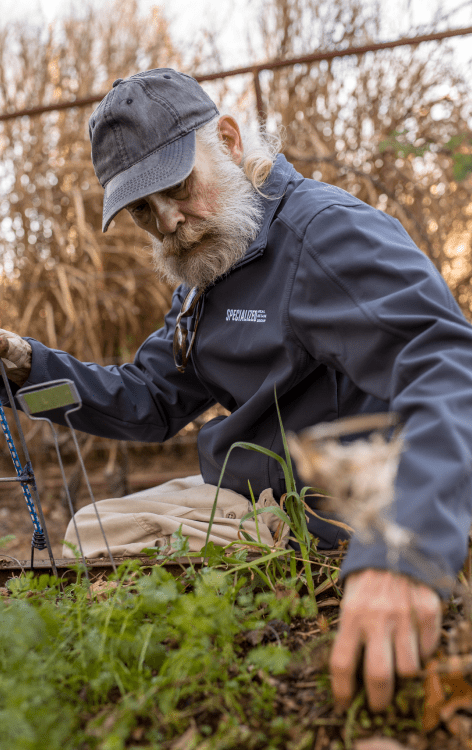
Meet Your Horticulturist Tim Copeland
To those who live at ECO Modern Flats, Tim Copeland’s face is familiar and welcome. Tim is the king of horticulture, organic gardening, and native landscaping for Specialized Real Estate Group. You’ve seen him working hard in the garden, tending to the landscape, or sorting recycling. He always wears his hair in a ponytail under a worn ball cap; he can usually be seen wearing headphones and listening to baseball games on his radio.
Tim grew up here in Fayetteville, with the backside of Mount Sequoyah as his playground. The woods and grasses of Arkansas affected him so much that, upon enrolling in the University of Arkansas, he decided to get his BA in botany, followed by an MA in agriculture.
He then created his own landscape company, working as designer, contractor, installer, and maintainer—he did everything. He became involved with Specialized while ECO was being built, and has stayed on since, varying in roles somewhat, but always taking care of the landscape. Tim’s gardening philosophy is, in his own words, “natural is better.”
Tim’s vision for his work extends far beyond ECO to the health of the whole region’s ecosystem.
Tim has maintained a totally organic vegetable garden at ECO for over five years, using no synthetic pesticides at all to keep away pests or disease. His preferred method of maintaining a healthy garden involves farmscaping: by planting Arkansas native plants, especially tall grasses, he can attract insects and animals that are natural predators of the pests that would invade the garden. These native creatures keep the garden healthy and promote a thriving ecosystem across the whole landscape.
Native plants are the key to Tim’s goals for the landscapes he cares for. He is incredibly knowledgeable about what Arkansas’ land looked like before humans arrived, and he aims to do as much as he can to recreate that in the corners of land under his care.
The native grasses he plants at ECO require little maintenance, and they create symbiotic relationships that benefit the larger ecology of the region: the grass seeds from ECO make their way down the road and into the nearby creeks—or even Beaver Lake—where they can take root and help maintain fragile riparian areas. Tim’s vision for his work extends far beyond ECO to the health of the whole region’s ecosystem.
If you would like to get to know Tim better (which I highly recommend!), one of the easiest and tastiest ways to do that is by getting involved in the community garden at ECO. He is usually working in the middle of the day: find him and strike up a conversation. Ask where you can pull weeds in the garden, what he’s been working on, or what he plans to plant in the spring garden events (coming up around the middle of April). Work alongside Tim for even a short time and you’ll see his credo, “natural is better,” in action.
The original version of this story by Emalie Cockrell appeared in Connection, our quarterly newsletter.



